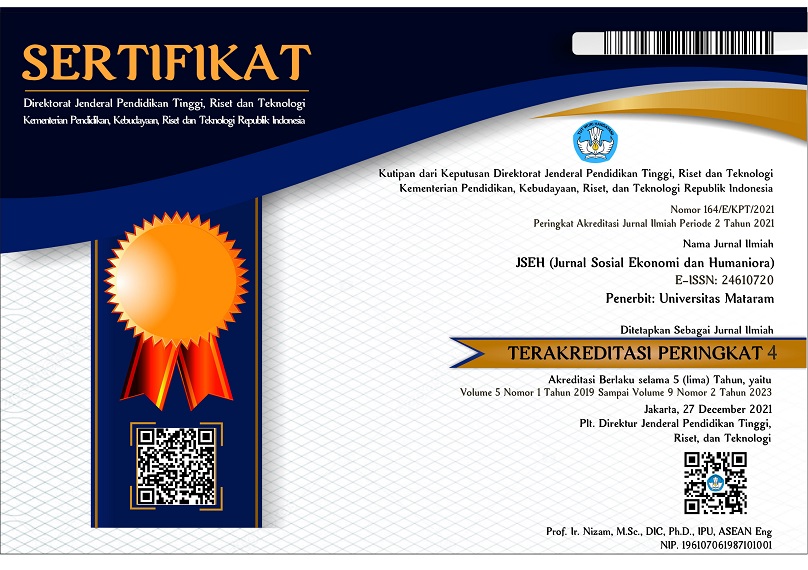PENGATURAN DALAM PEMBERIAN REMISI TERHADAP NARAPIDANA ANAK BERLANDASKAN NILAI KEADILAN & KEPASTIAN HUKUM
Keywords:
Remission, Prisoners, Children, JusticeAbstract
Indonesia as a state of law is obliged to carry out all of its activities in accordance with applicable law and play a role in achieving justice and legal certainty. Children who are in conflict with the law will undergo the process of the juvenile criminal justice system. As prisoners, children have a number of rights, namely rights as children themselves, as well as rights as prisoners. The right as a child prisoner, one of which gets remission. Remissions are given for the constitutional mandate that has been determined by the State through the Act and Presidential Decree. Remission is one of the important instruments for the criminal justice system in Indonesia, in accordance with its principle of re-socializing the community with the principle of protection. Remission has many good effects for child prisoners, to reduce the adverse effects that occur on children due to the criminal period that must be carried out and reduce the psychological burden of children who are growing and developing. The state exists to fulfill various children's rights, without exception the rights of children in conflict with the law. Fulfillment of rights includes an obligation to be carried out in accordance with the mandate of the law so that the protection of children applies in Indonesia. Remission is a right that must be granted in accordance with the terms and conditions set by the constitution based on the values of justice and legal certainty.
References
PERATURAN PEMERINTAH REPUBLIK INDONESIA NOMOR 32 TAHUN 1999 TENTANG SYARAT DAN TATA CARA PELAKSANAAN HAK WARGA BINAAN PEMASYARAKATAN
Harry E. Allen and Clifford E. Simmonsen dalam Purniati, Mamik, Sri Supatmi, dan Ni Made Martini Tinduk (2003). Correction in America An Introduction, Analisa Situasi Sistem Peradilan Pidana Anak (Juvenile Justice System) di Indonesia.Jakarta: UNICEF
Apong Herlina, dkk (2014). Perlindungan Terhadap Anak Yang Berhadapan Dengan Hukum, Buku Saku Untuk Polisi. Jakarta: Unicef.
Muhammad Joni dan Zulchaina Z Tanamas (1999). Aspek Perlindungan Anak Dalam Perspektif Konvensi Hak Anak,Bandung: PT Citra Aditya Bakti
Pribadi Dony. 2018. PERLINDUNGAN TERHADAP ANAKBERHADAPAN DENGAN HUKUM. Jurnal Pendidikan Hukum Vol.3 No.1 Universitas Airlangga Surabaya
Dr. Marlina, S.H., M. Hum (2009). Peradilan Pidana Anak di Indonesia, Pengembangan Konsep Diversi dan Restorative Justice. Bandung: Refika Aditama.
Muhammad Joni dan Zulchaina Z Tanamas (1999). Aspek Perlindungan Anak Dalam Perspektif Konvensi Hak Anak,Bandung: PT Citra Aditya Bakti
Keputusan Presiden No.174 Tahun 1999
Keputusan Menteri Kehakiman Dan HAM No. M.04-HN.02.01 Tahun 2000
Undang-Undang No.12 Tahun 1995 tentang Pemasyarakatan
Convention Of The Rights of The Child
UU No. 11 Tahun 2012 tentang Sistem Peradilan Pidana Anak.
Undang-undang No. 35 Tahun 2014 tentang Perubahan atas UU Nomor 23 tahun 2002tentang perlindungan Anak.Penjelasan Umum,
UU No.11 tahun 2012 tentang Sistem Peradilan Pidana Anak.
UU No.23 Tahun 2002 tentang Perlindungan Anak.
Downloads
Published
How to Cite
Issue
Section
License

This work is licensed under a Creative Commons Attribution-NonCommercial 4.0 International License.








